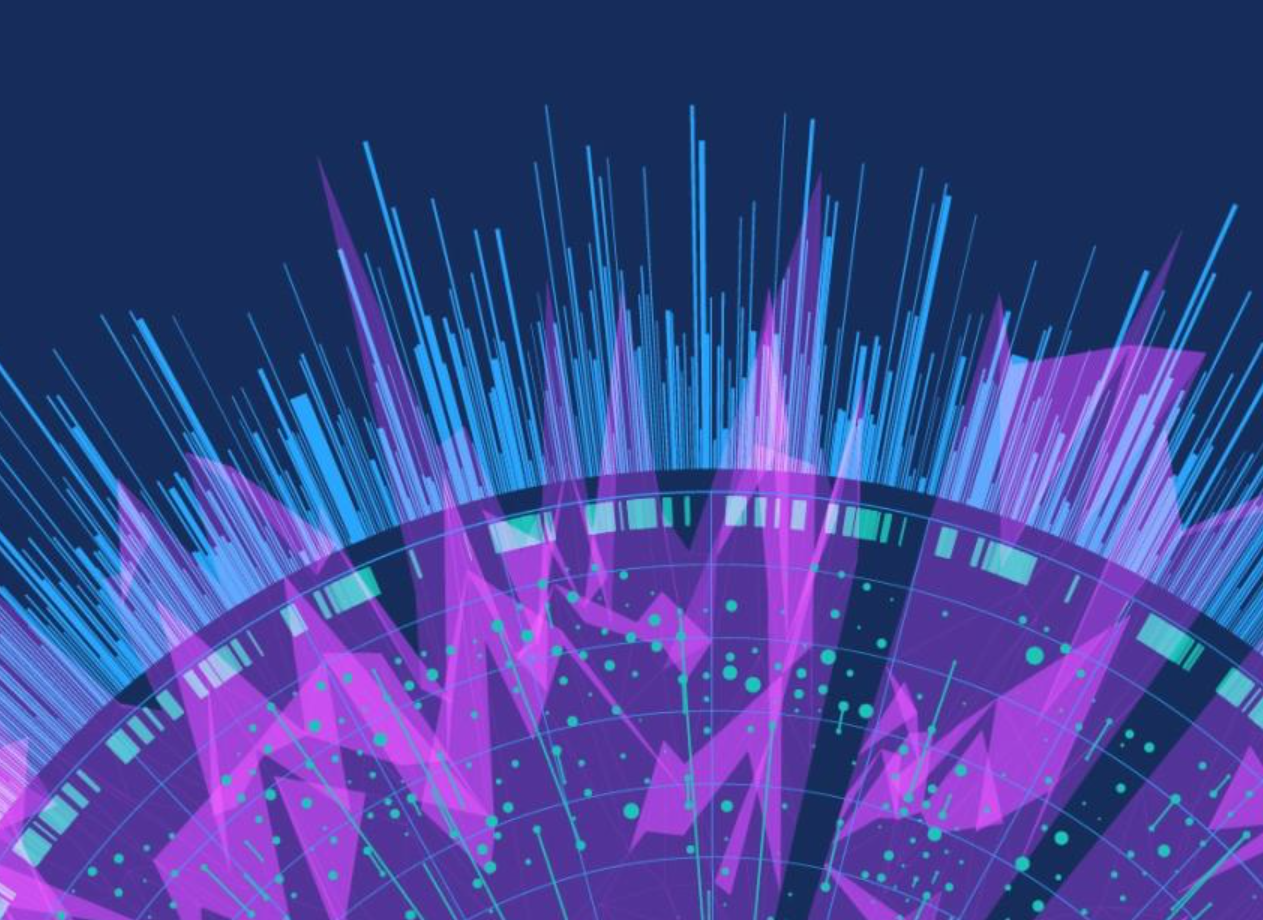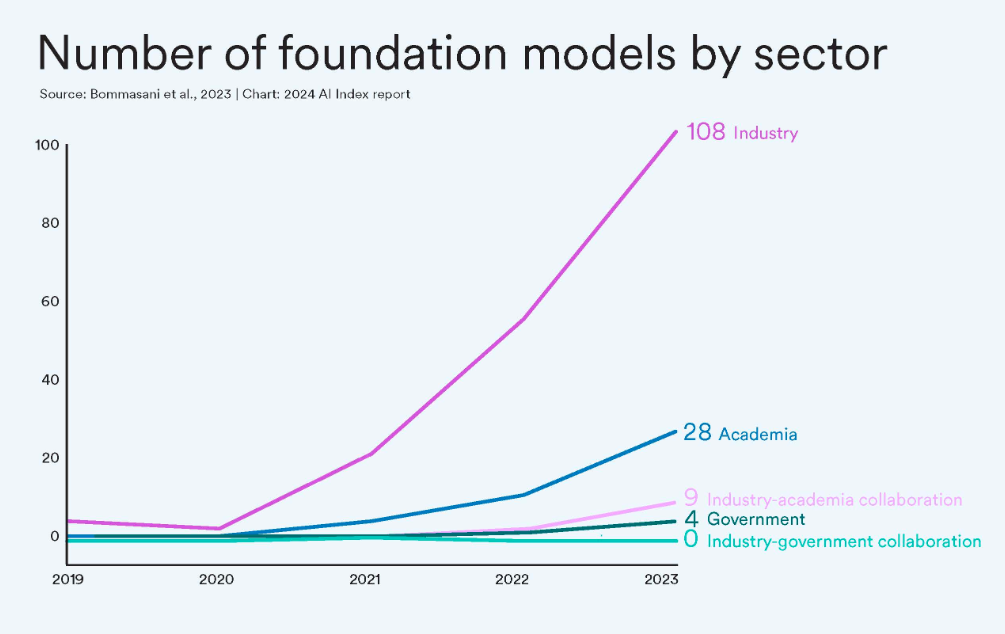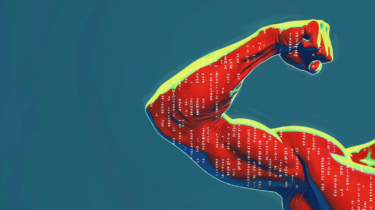The AI Index, an independent report by the Stanford Institute for Human-Centered Artificial Intelligence (HAI), provides a comprehensive overview of global AI trends in 2023.
The 300+ page report examines the rise of multimodal foundational models, significant investments in generative AI, new performance benchmarks, evolving global perspectives, and emerging regulations.
Industry outpaces academia
Industry outpaces academia in AI development and deployment, the report finds. Organizations published 149 foundational models last year, more than double the number published in 2022. Of these newly published models, 65.7 percent were open source, compared to just 44.4 percent in 2022 and 33.3 percent in 2021.
However, closed models still outperform their open-source counterparts. In selected benchmarks, closed models achieved an average performance advantage of 24.2 percent.
Google leads in publishing the most foundation models (18), followed by OpenAI (11). Industry dominates AI, especially in training and publishing foundation models. In 2023, 72% of all new foundation models were created by industry.
Image: AI Index 2024One reason why academia and government have fallen behind in the AI race is the exponentially increasing cost of developing these massive models. Google's Gemini Ultra cost an estimated $191 million in computing power to train, while OpenAI's GPT-4 cost an estimated $78 million.
The CEO of Anthropic, the company behind Claude 3, recently estimated that the cost of training advanced AI models could soon reach $5-10 billion.
The USA continues to dominate in terms of leading AI models, with a total of 61 models developed in 2023. Since 2019, the USA has consistently led in this area, followed by China and the UK.
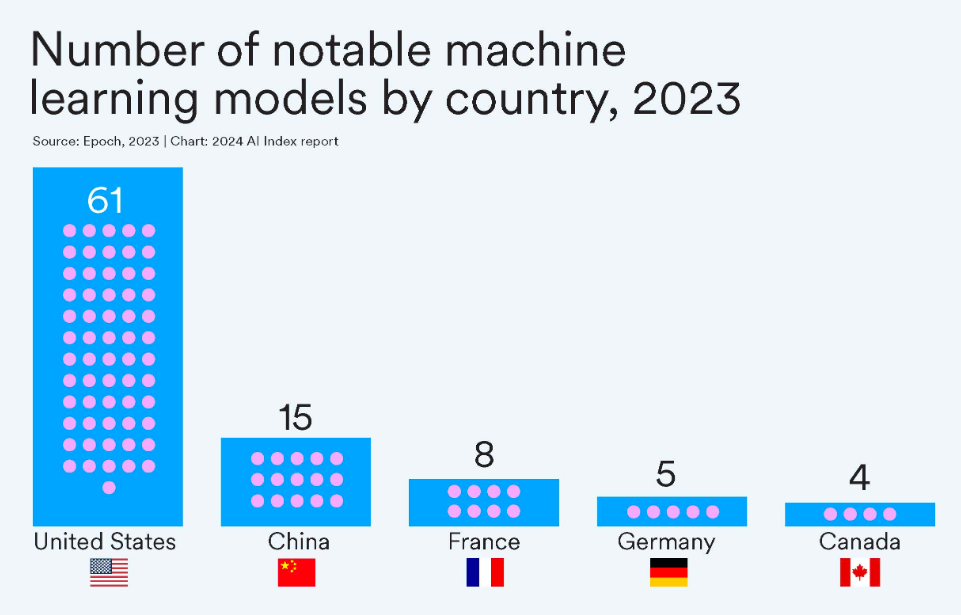
The U.S. also leads in private investment in AI. In 2023, $67.2 billion will be invested in the U.S., about 8.7 times more than China, the second-highest investor, and 17.8 times more than the U.K.
In 2023, AI reached human performance levels in many key AI benchmarks, from reading comprehension to visual thinking. Perhaps as a result, most people expect AI to transform their workplace. More than a third expect AI to replace them. But AI still lags behind in more complex tasks, such as competitive-level math, visual reasoning, and planning.
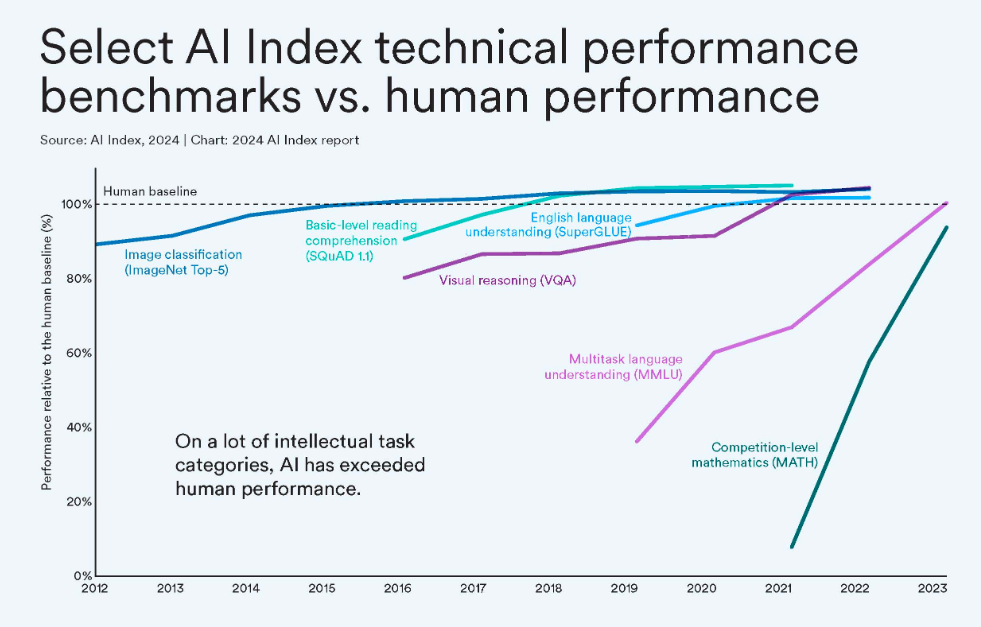
Younger generations - Gen Z and Millennials - expect AI to have a greater impact than older generations such as Gen X and Baby Boomers. 66 percent of Gen Z, but only 46 percent of Baby Boomers, believe AI will have a significant impact on their current jobs.
Significant advances in AI research have been made in multimodal models that can handle tasks in different categories, in more flexible robots, and in accelerating scientific discoveries in areas such as weather forecasting, crystallography, and medicine.
Insights from training language models have also accelerated areas such as video and music creation. In robotics, models such as PaLM-E and RT-2 are enabling more complex manipulation tasks and interactions, according to the report.
